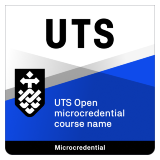This microcredential is structured into four distinct blocks, with a week to complete assessment interspersed between each block. Each block includes self-study materials and facilitated online lectures and workshops:
Block 1: Digital Strategy, CDE Setup and Collaboration (Weeks 1-3)
Participants will develop skills in creating a unified, shared project vision to ensure coordination across disciplines, collaborative teamwork and minimisation of potential conflicts. Participants also build practical skills in the setup of master data management schemas and tools, and establishing and effectively utilising a 'common data environment', supporting data creation, validation, sharing and updating of workflows. This block therefore focuses on the role of communication, selection of technology and design of digital workflows.
Block 2: Survey and Existing Conditions Modelling (Weeks 5-8)
This block introduces participants to the intricacies and structure of 3D data-rich models, including both their geometry and metadata. This knowledge is applied to surveying and modelling existing conditions, cultivating practical knowledge across several pivotal topics essential to the implementation of digital engineering in linear infrastructure projects, including site, GIS and base map data; digital survey (Digital Terrain Modelling); managing point cloud and GIS data; geo-referencing and model setout.
Block 3: Project Coordination (Weeks 11-14)
Develop your expertise in design coordination covering the essentials of coordinating infrastructure systems, including streamlined multidisciplinary coordination, identifying and resolving discrepancies early and minimising errors. Acquire the skills to verify and validate project data, ensuring accuracy, relevance, and completeness. Navigate the common challenges in data management, understanding how to maintain data integrity throughout the project lifecycle. Delve into the structured process of reviewing technical designs, ensuring they meet project specifications, standards, and stakeholder expectations. Learn how to facilitate collaborative design reviews, gather feedback, and make informed adjustments to designs, promoting project success.
Block 4: Quantity Take-Off for Planning, Cost and Carbon (Weeks 16-19)
The focus of this block is on model- based quantity take-off and is tailored to equip participants with the skills and knowledge required to harness digital engineering and 3D models to support the quantification of project essentials, facilitating planning, cost and carbon estimating. Participants will dive into the nuances of model metadata that enables extracting accurate quantity take-offs from 3D models, facilitating detailed project planning, near real-time cost updates as the design evolves and the innovative use of 3D models for carbon measurement.
This microcredential will cover the main datasets, processes and technologies of digital engineering and the role of building information modelling. The course content and case studies span the acquisition phase (design, build, integrate and accept), providing deeper insight into digital project delivery using integrated data-driven approaches.
Course delivery
The course involves interactive online workshops, small group projects, large group discussions and individual industry-based digital projects. Authentic assessment is informed through industry partners, reflecting the work-ready requirements of digital and model-based information management.
Acknowledgment
This microcredential course was developed with the support of the Australian Government’s Microcredentials Pilot in Higher Education.



















